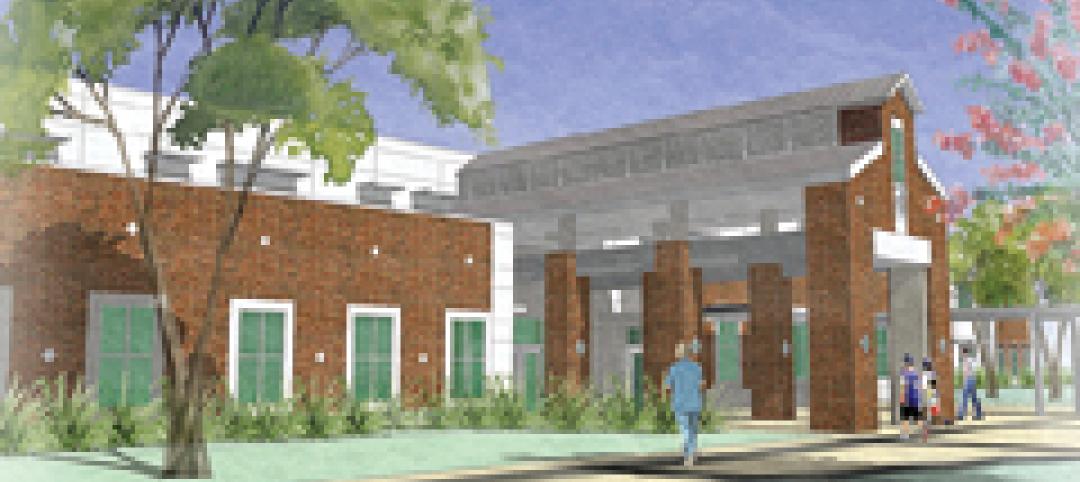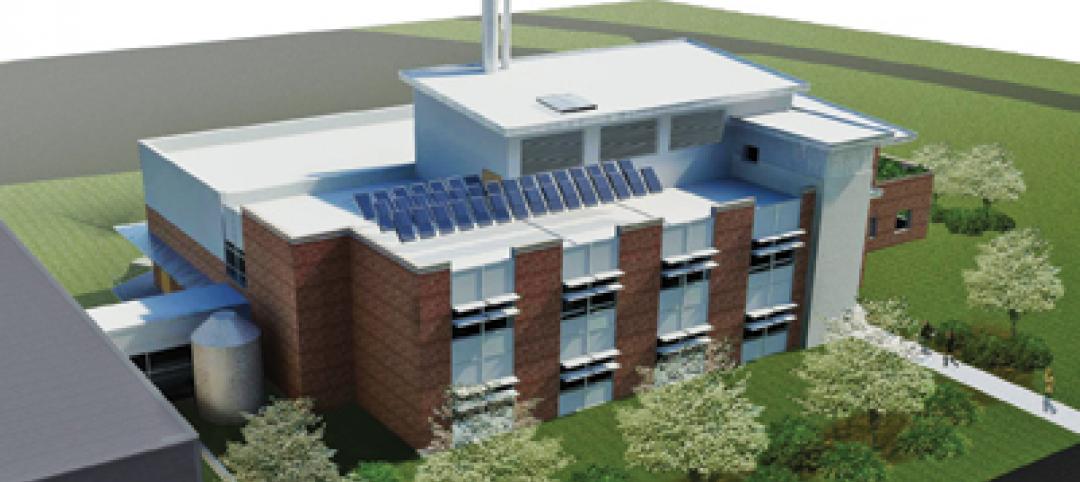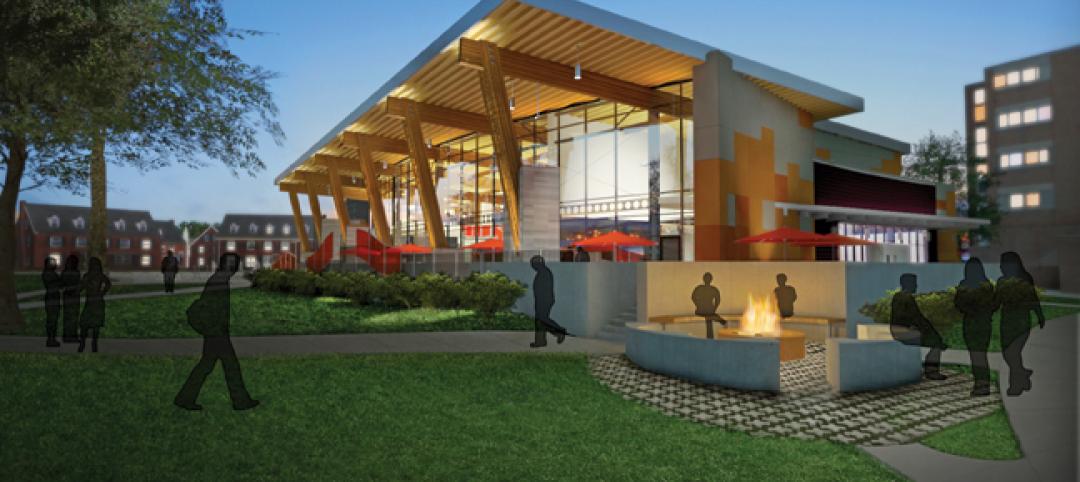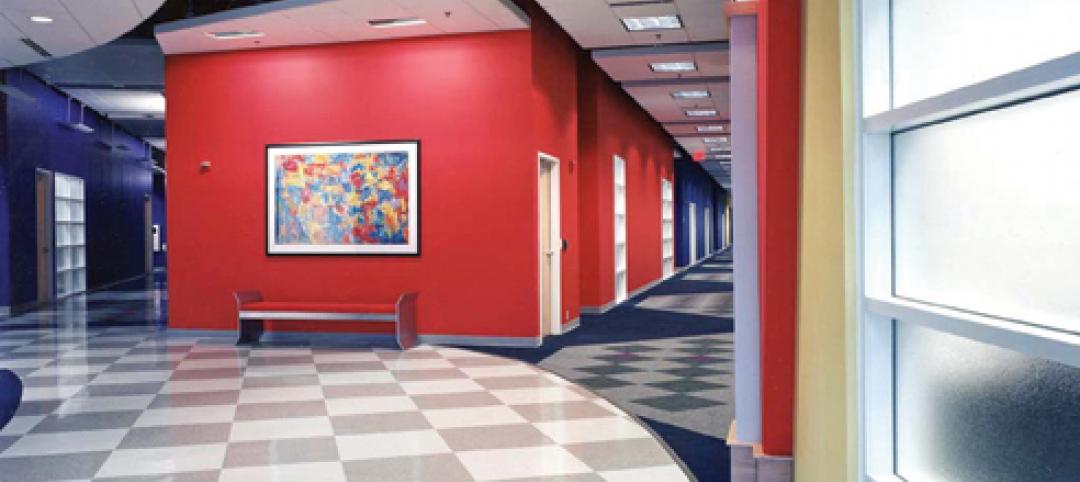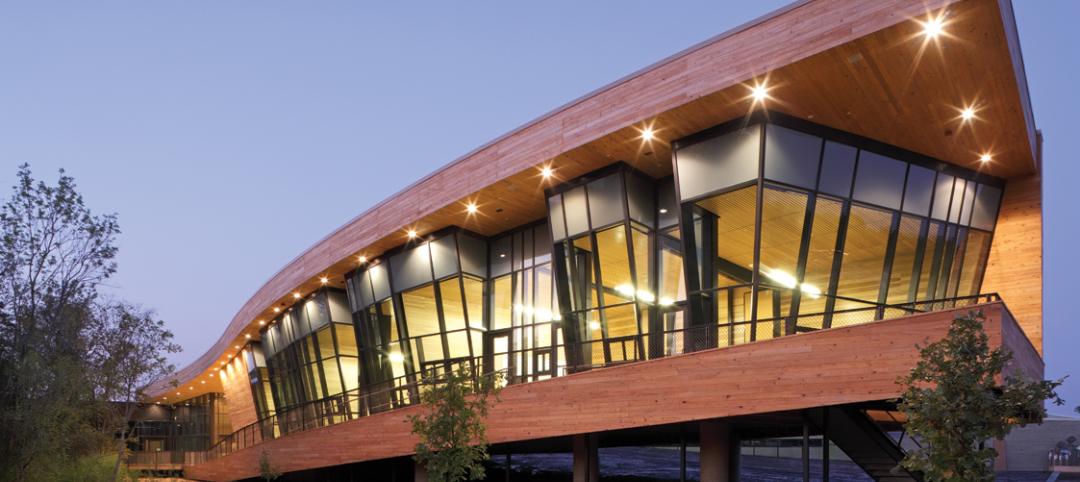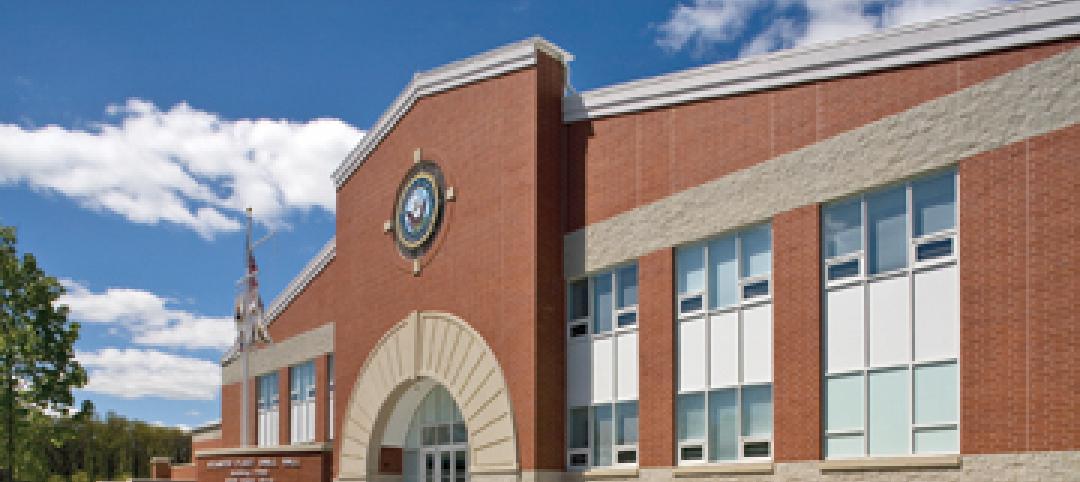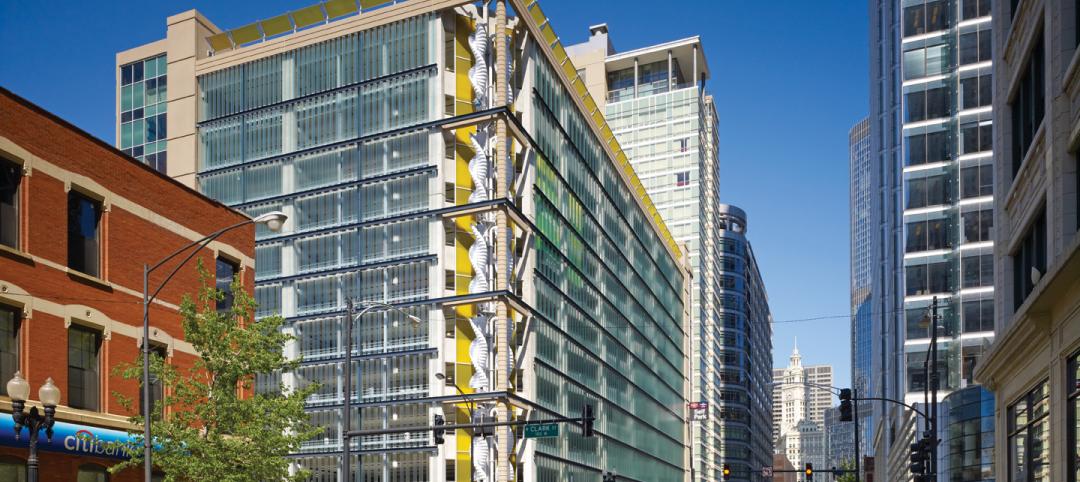The Board of Directors of the American Institute of Architects (AIA) voted to posthumously award the 2017 AIA Gold Medal to Paul Revere Williams, FAIA, whose portfolio of nearly 3,000 buildings during his five-decade career was marked with a number of broken barriers. The Gold Medal honors an individual whose significant body of work has had a lasting influence on the theory and practice of architecture. Williams’ legacy will be honored at the 2017 AIA National Convention in Orlando.
Williams, the first African-American architect to receive the AIA Gold Medal, was born in Los Angeles in 1894. He was orphaned by the age of four and was later raised by a foster mother who valued his education and encouraged his artistic development. Despite a high school teacher’s attempts to dissuade him from pursuing architecture for fear that he wouldn’t be able to pull clients from the predominantly white community while the black community would not sustain his practice, Williams persevered.
Williams garnered accolades in architectural competitions early in his career while developing tactics like rendering his drawings upside down so that his white clients could view his work from across the table rather than by sitting next to him. Williams was the first black architect to become a member of the AIA, and, later, the first black member to be inducted into the Institute’s College of Fellows. Williams opened his practice in the early 1920s when Southern California’s real estate market was booming. His early practice focused both on small, affordable houses for new homeowners and revival-style homes for his more affluent clients.
Williams’ practice expanded and among the 2,000 homes he designed included graceful private residences for legendary figures in business and entertainment such as Lucille Ball and Desi Arnaz, Lon Chaney, Frank Sinatra, and Barron Hilton.
While Williams was more than comfortable with the historical styles endemic to Southern California, his fluency in modernism is reflected in the work outside of his residential practice. Among his number of schools, public buildings, and churches are American architectural landmarks, including the Palm Springs Tennis Center (1946) designed with A. Quincy Jones, the space age LAX Theme Building (1961) designed with William Pereira, Charles Luckman, and Welton Becket, and his 1949 renovation of the iconic Beverly Hills Hotel. Eight of Williams’ works have been named to the National Register of Historic Places.
Williams, who passed away in 1980 is the 73rd AIA Gold Medalist. In recognition of his legacy to architecture, Williams’ name will be chiseled into the granite Wall of Honor in the lobby of the AIA headquarters in Washington, D.C.
Related Stories
| Nov 3, 2010
Senior housing will be affordable, sustainable
Horizons at Morgan Hill, a 49-unit affordable senior housing community in Morgan Hill, Calif., was designed by KTGY Group and developed by Urban Housing Communities. The $21.2 million, three-story building will offer 36 one-bed/bath units (773 sf) and 13 two-bed/bath units (1,025 sf) on a 2.6-acre site.
| Nov 3, 2010
Designs complete for new elementary school
SchenkelShultz has completed design of the new 101,270-sf elementary Highlands Elementary School, as well as designs for three existing buildings that will be renovated, in Kissimmee, Fla. The school will provide 48 classrooms for 920 students, a cafeteria, a media center, and a music/art suite with outdoor patio. Three facilities scheduled for renovations total 19,459 sf and include an eight-classroom building that will be used as an exceptional student education center, a older media center that will be used as a multipurpose building, and another building that will be reworked as a parent center, with two meeting rooms for community use. W.G. Mills/Ranger is serving as CM for the $15.1 million project.
| Nov 3, 2010
Chengdu retail center offers a blend of old and new China
The first phase of Pearl River New Town, an 80-acre project in Chengdu, in China’s Wenjiang District, is under way along the banks of the Jiang’an River. Chengdu was at one time a leading center for broadcloth production, and RTKL, which is overseeing the project’s master planning, architecture, branding, and landscape architecture, designed the project’s streets, pedestrian pathways, and bridges to resemble a woven fabric.
| Nov 3, 2010
Rotating atriums give Riyadh’s first Hilton an unusual twist
Goettsch Partners, in collaboration with Omrania & Associates (architect of record) and David Wrenn Interiors (interior designer), is serving as design architect for the five-star, 900-key Hilton Riyadh.
| Nov 3, 2010
Virginia biofuel research center moving along
The Sustainable Energy Technology Center has broken ground in October on the Danville, Va., campus of the Institute for Advanced Learning and Research. The 25,000-sf facility will be used to develop enhanced bio-based fuels, and will house research laboratories, support labs, graduate student research space, and faculty offices. Rainwater harvesting, a vegetated roof, low-VOC and recycled materials, photovoltaic panels, high-efficiency plumbing fixtures and water-saving systems, and LED light fixtures will be deployed. Dewberry served as lead architect, with Lord Aeck & Sargent serving as laboratory designer and sustainability consultant. Perigon Engineering consulted on high-bay process labs. New Atlantic Contracting is building the facility.
| Nov 3, 2010
Dining center cooks up LEED Platinum rating
Students at Bowling Green State University in Ohio will be eating in a new LEED Platinum multiuse dining center next fall. The 30,000-sf McDonald Dining Center will have a 700-seat main dining room, a quick-service restaurant, retail space, and multiple areas for students to gather inside and out, including a fire pit and several patios—one of them on the rooftop.
| Nov 2, 2010
11 Tips for Breathing New Life into Old Office Spaces
A slowdown in new construction has firms focusing on office reconstruction and interior renovations. Three experts from Hixson Architecture Engineering Interiors offer 11 tips for office renovation success. Tip #1: Check the landscaping.
| Nov 2, 2010
Cypress Siding Helps Nature Center Look its Part
The Trinity River Audubon Center, which sits within a 6,000-acre forest just outside Dallas, utilizes sustainable materials that help the $12.5 million nature center fit its wooded setting and put it on a path to earning LEED Gold.
| Nov 2, 2010
A Look Back at the Navy’s First LEED Gold
Building Design+Construction takes a retrospective tour of a pace-setting LEED project.
| Nov 2, 2010
Wind Power, Windy City-style
Building-integrated wind turbines lend a futuristic look to a parking structure in Chicago’s trendy River North neighborhood. Only time will tell how much power the wind devices will generate.



